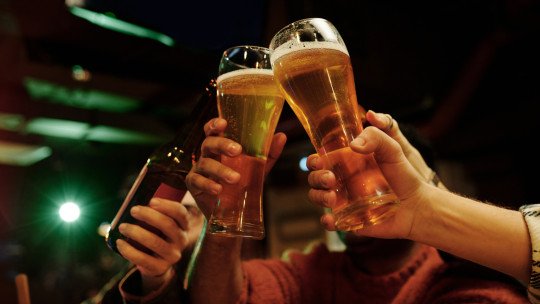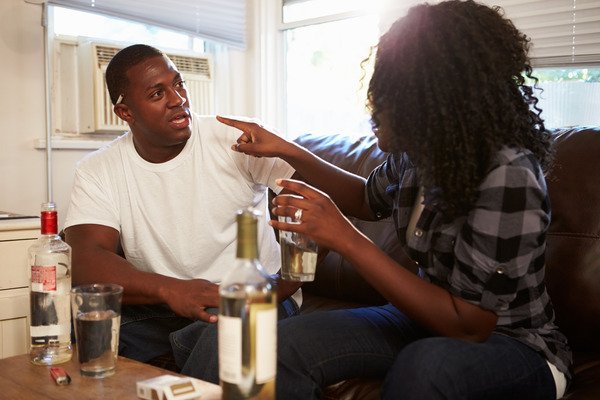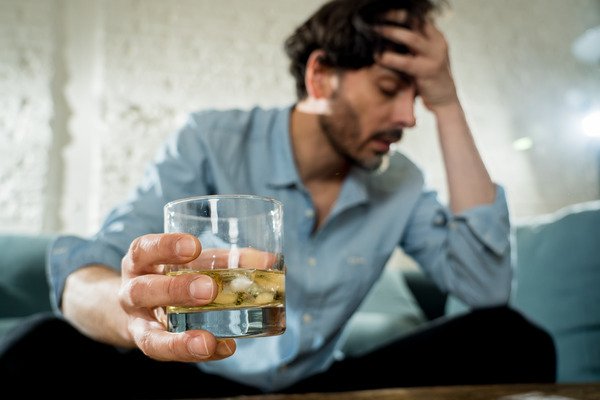Who hasn’t heard that voice in the head that says: “One more and that’s it”? Beer is the faithful friend of many nights and the silent protagonist of weekends, meetings, and even moments of solitude. But, When it becomes a companion that is difficult to let go, perhaps the time has come to consider leaving it, especially if your relationship with beer has begun to depend more on a “need” than on a “want.”.
Today I am going to guide you, as a psychologist specialized in addictions, on a journey that will make you see the reasons to say goodbye and, then, I will give you clear and concrete steps to do so. Because, believe me, freeing yourself from that impulse is possible (and it can change your life).
Why stop drinking beer?
At first, a little beer was enough to relax and clear your mind. But as time goes by, the body gets used to it, and it is no longer one but two, three, or even more, to feel the same effect. This phenomenon is called tolerance, and it is one of the signs that the body and mind are entering the zone of dependency.. Beer stops being something sporadic and becomes a habit.
Beer, like other alcoholic beverages, has a physical addiction component. When consumed excessively and frequently, the body begins to feel a “withdrawal syndrome” when it does not have it. Anxiety, irritability and even insomnia can appear when trying to reduce consumption. Not only that, there is also a mental and social addiction: for some people, beer is the excuse to connect or the lubricant to cope.
Ah, the “beer is good for you” myth. The reality is that any positive effects (such as helping digestion) are completely overshadowed by the risks associated with frequent consumption: liver problems, weight gain, insomnia, risk of cardiovascular diseases, and the list goes on. Stopping drinking is not cutting off a source of health, but quite the opposite.
Did you know that stopping drinking can help you lose weight? Beer has a lot of empty calories that your body doesn’t need and that just turn into fat. You are also doing a huge favor for your liver, which needs a break to work well and stay healthy. Plus, alcohol is a silent saboteur of your sleep: it keeps you from reaching the deep sleep that truly restores you. And if we add the improvement in mental clarity and energy, the benefit is round.
Look, not to ruin your afterwork or that Sunday aperitif, but it’s time to have an honest conversation about beer. The one that seems so innocent, so sociable and so “just one more”, can actually have a significant impact on your physical and psychological health. If you’ve ever felt like that second or third beer wasn’t the best idea, read on: you might discover why your body and mind were right..
8 reasons to stop drinking beer
Some of the most important are:
1. Empty calories and the famous “beer belly”
Let’s start with what many already suspect: beer is like a cocktail of empty calories that do not feed you, but do make you fat. A pint of beer has approximately 200 calories; Two pints and you already have almost the same calories as a full burger.
The problem is that those calories, coming from alcohol and carbohydrates, are not nutrients that your body can take advantage of to function better. What they do, instead, is add to the famous “beer Michelin” that so many people struggle to get rid of in the gym. And, surprise, with every beer you drink, you are one step closer to the famous “happy belly” (which in reality, is nothing happy).
2. Liver: the anonymous hero who suffers in silence
The liver is the one who pays the price for our beers. This gland works tirelessly to process toxins, including alcohol, and protect you from their harmful effects. But what happens when we don’t give it a break? The liver ends up overloaded, and this can lead to an accumulation of fat in the organ, which over time can develop into liver disease. The consequences are not small: from inflammation to more serious problems such as alcoholic hepatitis or, in severe cases, cirrhosis. And the worst thing is that the liver does not warn with major symptoms until the damage has already been done.
3. Cardiovascular risk: the “daily beer” trap
It is sometimes said that a beer a day is good for the heart. However, the reality is much less kind. Although light and occasional consumption does not cause great harm, the habit of drinking beer regularly does raise blood pressure and increase the risk of cardiovascular diseases.
Alcohol weakens blood vessels and increases “bad” cholesterol levels, two factors that can take their toll in the long term. And since many people underestimate the damage of just one beer a day, the danger lies in consumption becoming an almost invisible habit, which silently brings consequences.
4. Sleep with the “blanket” of beer
If you’ve ever had a beer to relax and thought it would help you sleep, bad news. Although alcohol can make you feel sleepy, it actually affects the quality of your rest. Because? Because it interferes with the phases of deep sleep, which are the most restorative.
You may fall into bed and fall asleep quickly, but what you will have is a fragmented sleep, which will not allow you to rest. The result? The next day, you will feel like you didn’t sleep well, and that, in the long run, affects your performance, concentration and mood.
5. Social dependence: the “beer for everything” syndrome
For many people, beer has gone from an occasional drink to a social tool. Do you feel anxiety at a party? “One beer and everything is fine.” A bad day at work? “A couple of beers and it’s over.” The point is that this type of consumption is an emotional trap, because you end up using beer as a crutch to deal with difficult situations.
The consequence: instead of developing strategies to manage stress or anxiety, your brain turns to beer to “calm down.” In the long run, this not only increases consumption, but can make you more psychologically dependent, weakening your ability to cope with problems..
6. Long-term anxiety and sadness
Although it may seem paradoxical, beer and alcohol in general have a depressing effect on the brain. It is true that at first they can make you feel euphoric or relaxed, but the effect is actually temporary. Over time, regular consumption can amplify symptoms of anxiety and depression.
The reason is simple: alcohol reduces levels of serotonin, the neurotransmitter related to good mood, and affects brain chemistry in a way that ends up altering mood. Thus, beer can go from being a friend to being the culprit of that discomfort that you thought you were controlling.
7. Distortion of reality and personal perception
We are not going to fool ourselves: after a few beers, it is easy to believe that you are the best version of yourself, the funniest, most uninhibited and charismatic person in the room. But this effect is nothing more than a temporal distortion. Beer, in that sense, functions as a disguise. It makes us feel a security that, deep down, is not there when we are sober. The problem is that, by believing that we are only “ourselves” with a few beers, we can end up disconnected from our own authenticity.
8. The paradox of fun that becomes a burden
At first, beer seems like the ally of good times, but when consumption becomes habitual, that fun begins to become a burden. The anxiety to drink the next beer, the regrets the next day, the accumulated fatigue… All of this turns beer into a routine that does not fill us, but rather drains us. The relationship begins to lose its grace, and the negative effects begin to outweigh the moments of “liquid joy.”
Is it worth the sacrifice?
If after reading this you are tempted to take a “last” to reflect, remember: beer seems harmless, but its effects are not a game. Maybe it’s time to reflect on how much control you have over your days and nights, and think about healthier alternatives to enjoy and take care of yourself. Because, in the end, although a beer may seem like a lifelong friend, it is nothing more than a habit that you can leave behind in search of a fuller and healthier life. With these reasons in mind, let’s take action.
10 Steps to stop drinking beer
It is important:
1. Accept that you have dependency
This is the first step, although it is not always easy to admit. Accepting that beer has gone from being an occasional pleasure to a necessity is key to stopping drinking it. Recognize that anxiety or irritation that “not having beer on hand” generates in you.. Observe those emotions; don’t judge them. The simple fact of being aware of your dependence is the first great step towards change.
2. Develop zero tolerance for excuses
There are an infinite number of excuses with which your mind can try to convince you to continue drinking: “it’s just a beer”, “all my friends drink”, or “it helps me relax”. It is essential that you become aware of these traps and put the brakes on them. An effective trick is to replace excuses with benefits: every time you think about drinking, remind yourself why you are quitting and how good you will feel without beer.
3. Strengthen your social skills without alcohol
Do you feel like beer is the only way to enjoy yourself at a party? Practice being with people without drinking, you may feel out of place at first, but over time you will discover that social trust is built from within. A trick for meetings is to practice a simple phrase to explain why you are not drinking, something like “I am taking care of my health” or “I am in a new stage.” This will prevent others from insisting and you will have a solid and easy excuse.
4. Manage stress in other ways
Beer is often an easy refuge to dull difficult emotions. Change the beer for another method to release tension. If you feel overwhelmed or anxious, try other activities, such as exercise, meditation, or journaling. Think of those alternatives as “new tools.” Every time you manage to relieve stress without beer, you will gain a little more freedom.
5. Dismantle the myth of beer as part of daily life
Question the idea that it is normal and even healthy to drink a beer every day. Many times consumption is justified as part of the culture, but once you understand the harm and unnecessaryness of this habit, it will be easier to say goodbye. This requires reflection: ask yourself how you would feel if your life revolved around another beverage, like water or tea. Desacralizing beer is key.
6. Substitute with healthier alternatives
Substitution does not mean cheating. Look for alternative drinks that don’t evoke beer. When in doubt, it is always best to drink water. Why? Because if you try to replace beer with another similar drink, such as non-alcoholic beers, you could be tempting your brain to maintain the routine of “drinking” beer. Better give him something different, that doesn’t look like beer and doesn’t cause the same triggers. It’s a matter of getting used to drinking anything else while enjoying good company or sitting on your favorite terrace.
7. Communicate your decision to others
If you don’t want to drink anymore, tell your friends, your family, and even your co-workers. What seems small actually has a big effect: when your acquaintances know about your decision, the commitment is much stronger and you will avoid social pressure. People tend to respect firm decisions, and will most likely encourage or even support you.
8. Avoid temptations and modify your environment
What places and activities do you associate with beer? Maybe the bar after work, soccer games, or certain restaurants. Try to reduce or avoid those places, at least initially. Also, spend time discovering new activities that don’t involve alcohol consumption. If you change the environment, you also change your habit.
9. Rediscover a life without alcohol
Take a try and explore new ways to have fun. Not everything has to revolve around alcohol. Enjoy the company, music, outdoor activities. Remember that well-being is something you build, and happiness is not in a bottle. Learning to appreciate those moments without beer will give a refreshing new meaning to your life.
10. Seek professional help
Sometimes stopping drinking requires outside support. If you feel that you cannot do it alone, a good addiction psychologist will be able to help you. Each of these steps is a tool in your gearbox. Nobody says it will be easy, but it is possible and it is worth it. The key is to persist, to remember that giving up beer does not mean losing something, but gaining much more. So, when the desire hits you, breathe, remind yourself of your reasons for wanting the change, and move forward with determination.









